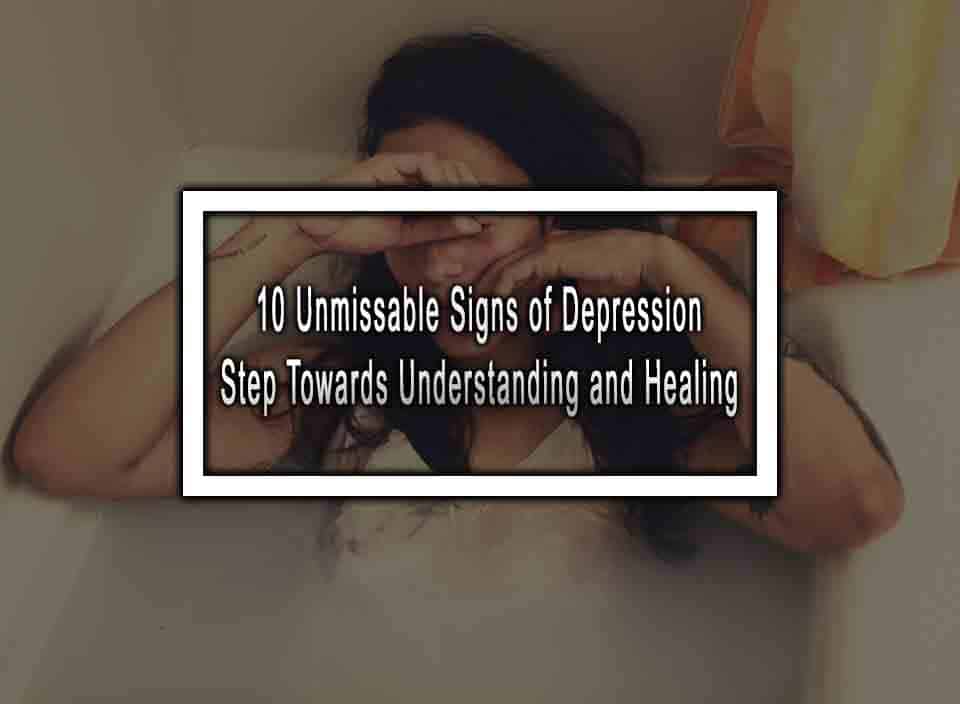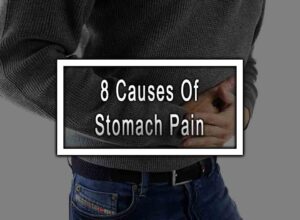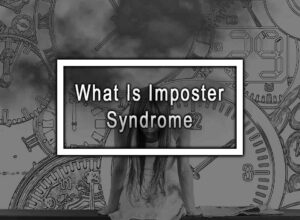Table of Contents
ToggleBreak the Silence: Understanding the 10 Indisputable Signs of Depression
Depression, a common yet severe medical illness, affects the way one feels, thinks and acts. It’s debilitating, but also highly treatable. The challenge lies in spotting its signals. However, these 10 signs might be telling you, or someone you know, that it’s time to seek help. The first step towards healing is understanding. So, let’s dive into these undeniable indicators of depression.
1. Feeling Sad or Empty for Extended Periods
Feeling persistently sad or empty is a hallmark sign of depression. This isn’t just about ordinary feelings of sadness; it’s an overwhelming sense of despair that can creep into every aspect of your life.
2. Losing Interest in once Loved Activities
A diminished or vanished interest in activities once enjoyed, like hobbies, games, or social events, is a major red flag. When low periods last for two weeks or more, it may be an indicator of depression.
3. Unintentional Weight Changes
Depression can manifest physically as substantial weight loss or gain in a short period due to lack of appetite or emotional eating.
4. Sleeping Too Much or Too Little
Changes in sleep patterns – either insomnia or excessive sleeping – are another significant sign. Depression often comes hand in hand with sleep disorders.
5. Feeling Restless or Slowed Down
Depression may cause you to feel unaccountably restless, unable to sit still, or to feel slowed down as if you’re moving and thinking in slow motion.
6. Consistently Low Energy
Individuals with depression often experience intense fatigue, regardless of how much sleep they get.
7. Consistent Feeling of Worthlessness or Guilt
Depression often causes persistent feelings of worthlessness, guilt, or helplessness – a belief that you’ll never be ‘good enough’ or that everything wrong is your fault.
8. Difficulty Concentrating or Deciding
Another telltale sign of depression is struggling with decision-making or having trouble focusing, remembering or concentrating on everyday tasks.
9. Unexplained Physical Ailments
Depression sometimes manifests physically with unexplained aches, pains, cramps, or digestive issues that don’t seem to respond to treatment.
10. Recurring Thoughts of Death or Suicide
Regular contemplation of death or suicide, regardless of a specific plan, is a serious warning sign of depression. It’s crucial to get help immediately if you or someone you know experiences this particular symptom.
Depression is Real: Don’t Ignore the Signs
Depression is a serious but treatable health concern that affects millions of people worldwide. Awareness is essential in recognizing and understanding its symptoms within ourselves or within those around us. Remember, it’s okay not to be okay and seek help whenever necessary. Don’t leave the signs of depression unnoticed: your understanding and actions can lead towards healing or even save a life.
Signs of Depression FAQ
Here are the most common questions about signs of depression.
1. Can depression cause physical symptoms?
Yes, depression can manifest in physical symptoms such as headaches, stomachaches, muscle aches, back pain, chest pain, and changes in appetite or weight.
2. How long does depression last?
Depression can vary in duration for each individual. Some people may experience a single episode of depression that lasts for a few weeks or months, while others may have recurring or chronic depression that lasts for years if left untreated.
3. Are there different types of depression?
Yes, there are different types of depression, including major depressive disorder, persistent depressive disorder (dysthymia), postpartum depression, seasonal affective disorder, and bipolar disorder, which involves episodes of depression alternating with episodes of mania.
4. Can children and adolescents experience depression?
Yes, children and adolescents can experience depression. However, depression may manifest differently in younger individuals, showing symptoms such as irritability, anger, loss of interest in activities, changes in academic performance, physical complaints (headaches, stomachaches), and withdrawal from social interactions.
5. How can I help someone with depression?
Supporting someone with depression involves being understanding, patient, and non-judgmental. Encouraging them to seek professional help, offering to accompany them to appointments, and being available to listen can be helpful. Avoid blaming or minimizing their experiences and let them know that you care and are there to support them.












